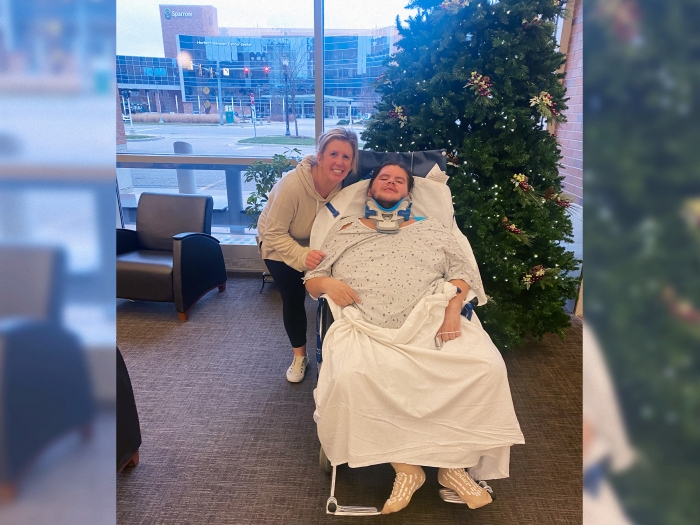New policies designed to minimize COVID-19 spread as cases increase statewide
Author |
Michigan Medicine has added visitor restrictions at its hospitals and clinics to continue to minimize COVID-19 spread and keep patients and staff safe.
No visitors are allowed with adult emergency department patients, except when medically necessary.
The number of visitors allowed at our adult hospitals and C.S. Mott Children’s Hospital has not changed: one visitor per day for every adult, two for pediatrics. But family and other visitors are required to wear a mask (covering their mouth and nose) at all Michigan Medicine properties. This includes in a patient room and throughout the facility. Patients who can tolerate a mask must wear one when a health care worker is present in their room.
In clinics, no visitors will be allowed for adult patients unless the patient has a cognitive or physical impairment that requires assistance. One primary caregiver is allowed to accompany each pediatric patient to an appointment, unless an additional aide or assistant is required.
There are some exceptions for end-of-life care, labor and delivery and other situations, which are detailed at this link.
“We recognize the critical role that visitors – families and friends – play in the well-being of our patients. However, as the spread of COVID-19 hits record-setting levels across the state, we need to minimize the risk of transmission,” said Laraine Washer, M.D., Michigan Medicine’s medical director of infection prevention and epidemiology.
“Our top priority is the safety of our patients and our staff. We hope that by adding these restrictions, we will better protect everyone from COVID-19,” Washer said. “We need to continue to keep our Michigan Medicine facilities safe for all of our patients.”
Since the beginning of the pandemic, Michigan Medicine has been taking steps to protect staff and patients including screening our patients at our hospitals and clinics for symptoms; moving furniture to encourage social distancing; vigilant attention to cleaning and disinfection; and following established guidelines to minimize the spread of disease.
“Many people in our facilities are very sick or have weakened immune systems, which places them at higher risk. Limiting visitors and requiring a mask at all times will help reduce the spread of infection,” Washer said.
About Michigan Medicine: At Michigan Medicine, we advance health to serve Michigan and the world. We pursue excellence every day in our three hospitals, 125 clinics and home care operations that handle more than 2.3 million outpatient visits a year, as well as educate the next generation of physicians, health professionals and scientists in our U-M Medical School.
Michigan Medicine includes the top ranked U-M Medical School and the University of Michigan Health System, which includes the C.S. Mott Children’s Hospital, Von Voigtlander Women’s Hospital, University Hospital, the Frankel Cardiovascular Center and the Rogel Cancer Center. Michigan Medicine’s adult hospitals were ranked no. 11 in the nation by U.S. News and World Report in 2019-20 and C.S. Mott Children’s Hospital was the only children’s hospital in Michigan nationally ranked in all 10 pediatric specialties analyzed by U.S. News and World Report for 2019-20. The U-M Medical School is one of the nation's biomedical research powerhouses, with total research funding of more than $500 million.

Department of Communication at Michigan Medicine





